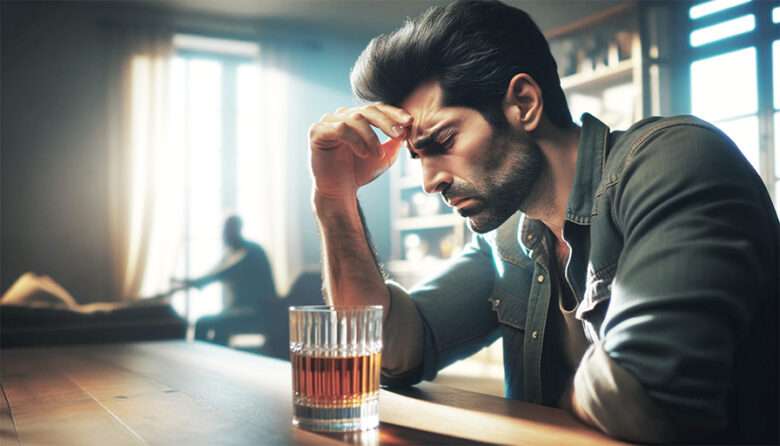Migraine headaches can be unbearable and affect millions of people around the world. Migraine headaches are often associated with a range of debilitating symptoms, including severe head pain, nausea and sensitivity to light and sound. While the exact causes of migraines remain complex and multifactorial, it’s important to explore potential triggers, one of which is alcohol.
In this article, we will look at the relationship between alcohol consumption and migraine headaches, to help you gain a better understanding of how alcohol can affect your migraine experience.

Many migraine sufferers have reported that alcohol can either trigger a migraine or make existing symptoms worse. However, it’s important to note that not everyone who has a migraine is affected by alcohol in the same way. The relationship between alcohol and migraines is complex and can vary from person to person.
Types of drinks: Different alcoholic drinks contain different compounds that can trigger migraines. For example, red wine is often cited as a common migraine trigger due to its high levels of tyramine and histamine. Spirits and beer can also trigger migraines in some people.
Moderation is also important: The amount of alcohol you drink is important. Heavy or excessive drinking is more likely to trigger migraines than moderate or occasional drinking. If you’re prone to migraines, it’s a good idea to limit your alcohol intake.
Dehydration: Alcohol is a diuretic, which means it can cause increased urination and dehydration. Dehydration is a known migraine trigger, so it’s important to stay hydrated when drinking alcohol.
Timing and patterns: Some people find that certain drinking patterns, such as binge drinking or drinking on an empty stomach, are more likely to trigger migraines. In addition, migraines can occur during or after alcohol consumption, but they can also occur the day after drinking, known as a “hangover headache”.
If you’re a migraine sufferer and suspect that alcohol is a trigger for your headaches, here are some strategies to help you manage your migraines while still enjoying the occasional drinks.
Find out your tolerance level for alcohol and stick to it. Drinking alcohol in moderation is less likely to trigger a migraine.
Choose alcoholic drinks with lower levels of migraine triggers. Clear spirits such as vodka or gin may be a better choice than red wine or beer.
Drink water between alcoholic drinks to prevent dehydration.
Avoid drinking on an empty stomach as this can increase the effects of alcohol. Eating a well-balanced meal before drinking may help.
Keep a diary of your migraine attacks, including what you ate and drank before each attack. This can help you identify specific triggers and make informed choices.
If you find that even moderate drinking consistently triggers migraines, you may want to consider giving up alcohol altogether.
The relationship between alcohol and migraines is complex and individual differences play an important role. While some people can enjoy an occasional drink without triggering a migraine, others may need to be more careful. Understanding your own triggers and limits is key to managing your migraines while still enjoying the occasional alcoholic drink. Remember to talk to a healthcare professional if you have any concerns about alcohol and migraines, as they can provide personalized advice and treatment options.